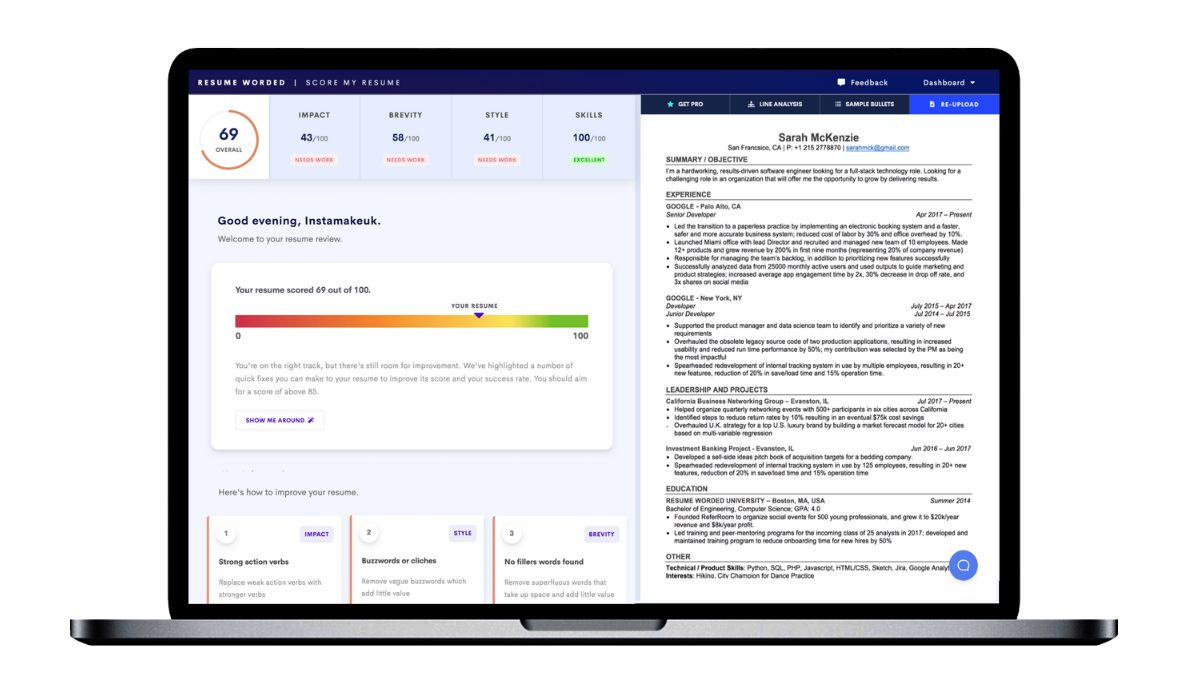The flexibility and convenience of working remotely afford us a unique opportunity to explore our products in ways we never thought possible. No longer tied to desktops or conference rooms, you now have the freedom to work anywhere and anytime you, please.
Not only does this provide an unparalleled level of comfort, but it also boosts morale, facilitates long-term productivity, reduces stress levels, and could even lead to greater job satisfaction. In this article, I’ll break down Is Work from Home More Productive? and why working from home is more than just about flexibility.
Comparing Office and Remote Work Productivity

Comparing the productivity of the office and remote work can be tricky because there are so many factors to consider. When it comes to working from home, there are a few key factors that make it a great choice for employers and employees alike.
Firstly, remote work encourages a healthy work-life balance. Without the need to commute to a physical office, employees have more time and energy to dedicate to their jobs. Plus, since remote workers have greater control over when and where they complete their tasks, they tend to be more in tune with their production cycles.
Secondly, remote work comes with fewer distractions than office work. Many studies have shown that distractions at work prevent employees from focusing on tasks for extended periods of time. Since the average office contains quite a few distractions – from unnecessary meetings to loud conversations – it’s no wonder why some people would prefer working from home!

Thirdly, the productivity of working from home versus in-office has been extensively researched—and all signs point to a clear winner. According to ConnectSolution, remote workers are 40% more productive than those in office settings.
That means remote workers get more done in less time, with a significantly higher rate of output. Plus, compared to office workers, those who work remotely are able to enjoy an additional day off each week due to their higher efficiency. In fact, research shows that employees who work from home take 10 minutes less of unproductive time each day compared to the amount taken by their office-based counterparts.
On top of that, remote working encourages employees to put forth their best effort. A study conducted by Stanford University found that remote workers are 40% more productive than those who work in regular offices a statistic that reveals yet another reason why so many people prefer it over the traditional 9-5 grind.
Finally, remote working creates an environment of trust between employers and employees. When companies trust their employees enough to let them complete their tasks remotely, it fosters cooperation by creating mutual respect. These relationships can help increase productivity by motivating employees and encouraging them to perform more efficiently!
How Technology Makes Remote Work Possible

The rise of remote work has a lot to do with technology. It enables employers to track employee performance and provide employees access to collaboration tools so they can work together while telecommuting.
When done well, remote work leverages the power of technology to increase productivity, with easy communication and collaboration between team members, wherever they are. At the same time, technology helps employers maintain control over costs and keep an up-to-date assessment of each employee’s performance.
It also ensures stakeholders have access to all their business resources, like customer databases and job management platforms, wherever they might be—allowing them to stay connected while working at home or on the go. Technology even helps employers assess their staff in terms of engagement, collaboration, and skills development, giving them the data they need for informed decisions about how best to manage their teams.
The Benefits of Remote Work on Employee Wellbeing

One major advantage of remote work that often gets overlooked is the improved well-being of employees. This isn’t just any fleeting feeling of happiness you get from not having to commute to the office—there are real, tangible benefits when it comes to working from home.
For starters, when you’re allowed to work remotely, you have more freedom and autonomy over your day-to-day life. That can mean being able to take a break without worrying about how it looks to co-workers or supervisors or being able to access mental health resources without fear of judgment.
Plus, with fewer distractions, it’s easier for employees to focus on the task at hand and stay in a good head space—not only do they complete their tasks faster and with more accuracy, but they also experience less stress and anxiety during the day.
Remote work can also improve your well-being in a major way. That’s right—you don’t have to worry about the stress of having to rush to catch your train or bus in the mornings, afternoons, and evenings when you have no control over traffic.

Studies show that remote workers tend to be happier and less stressed than those who travel daily to the office. Moreover, employees are more loyal when they’re given the chance to work remotely, improving workplace engagement as a result. It’s understandable why so many companies are now offering hybrid/remote options for their workforce.
So if you thought choosing remote work was only about flexibility, think again. Supporting employee well-being should be one of your top priorities for hybrid/remote working—it will pay off for the future of your organization!
Not having to worry about commuting can make a big difference too: say goodbye to peak hour traffic jams or waste time waiting for public transport! That just means more time on your hands for relaxation or leisure activities—it’s like getting free hours in your day!
Remote Work Trends Since the Start of the Pandemic

It’s no secret that the pandemic has changed the way people work. With many offices and businesses temporarily shutting down, going remote was not only the safest option, but it was also the most convenient. And that’s why more people are now enjoying the benefits of remote work—even when their offices open back up.
Reduce Commute Time
One of the biggest advantages of remote work is that you save time and money on your commute. You don’t need to worry about getting stuck in traffic or spending money on gas or parking anymore! The average American worker spends over an hour commuting each day, and that’s time they could be used to actually do their job and be productive. By working remotely instead, you’re able to focus on what matters—your job.
Increase Focus & Productivity
Not having to commute means more time for you to get things done in a timely manner, without having to worry about distractions like office chatter or loud noises in coworking spaces. Remote workers report being better focused and more productive in general when they work from home too! Plus, stress levels were reduced by 70%, according to a survey of 3,000 remote employees conducted by Owl Labs for their State of Remote Work 2020 study.
So if you’re looking for more job flexibility with less stress and increased productivity, then working from home might just be what you need.
Recommending Practical Strategies for Successful Remote Work

If you’re looking to make the most of remote work, there are a few practical strategies you can adopt to make it a more productive and successful experience.
Set a Schedule and Stick to It
It’s easy to be tempted by sleep-ins and late nights when working from home, and while there is flexibility with your hours, having a regular routine can help with productivity. Establishing regular start times, meal breaks and designated finish times will help maintain focus throughout the day.
Allow for Breaks Throughout the Day
We all need time for our brains to rest and recharge during the day. So, setting aside 15 minutes every hour or so for a break will give your mind some time away from your tasks. This can be anything from making yourself a snack or taking a quick walk around the block.
Utilize Technology
Technology can help us stay connected even when we’re not in the same place. Tools like Slack or Skype allow us to work together collaboratively without being in the same room. With video tools you can hold meetings and presentations, reducing any feelings of isolation that come with remote work.
When working remotely, it’s important that you find what works best for you in terms of allowing yourself breaks throughout the day, setting goals, and utilizing technology like video calls when needed. There are plenty of resources out there which provide more advice on how to make remote working more successful!
Resources for Employers to Help Build a Successful Remote Culture

Another advantage of remote work is that employers can choose the right resources to build a successful remote culture. From stipends for remote work setups to new technologies that enable quicker and better communication, employers can ensure that their teams are comfortable, productive, and safe.
Stipends for Remote Work Setups
Giving employees stipends to upgrade their own home office setups can make remote working much more pleasant and efficient. From ergonomic chairs to dual-monitor setups, employees are able to customize their workspaces for their own needs and comfort.
New Technologies

Remote work requires collaborative technologies that enable quick, clear communication — whether it’s instant messaging, video conferencing, or online meetings. By investing in the right tools and giving employees the necessary training on how to use them, employers can help maintain a productive remote culture while ensuring everyone remains on the same page.
At the end of the day, employers should make sure they’re taking into account their team’s feedback and listening to what they need in terms of resources. By providing the right tools and creating an environment of trust and motivation, successful remote work cultures can be created — one that enables flexibility while still providing an enjoyable work experience.
Conclusion
In conclusion, the benefits of working from home are vast: it allows employees to maintain control over their hours, spend more time with their families, and save money on transportation and other costs. It also presents an opportunity to do meaningful and creative work in a more relaxed, productive environment.
Coupled with a healthy work-life balance, remote work can have a positive impact on employee well-being, morale, and productivity. As more organizations recognize the potential of remote work and the competitive advantages it can bring to their teams and businesses, employees will continue to reap the benefits of the work-from-home revolution.








